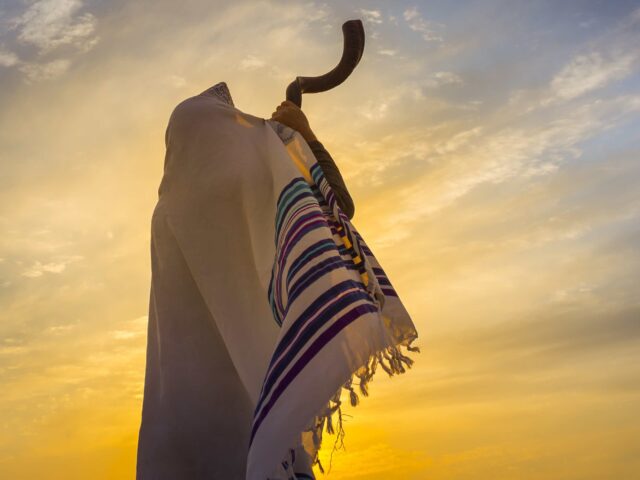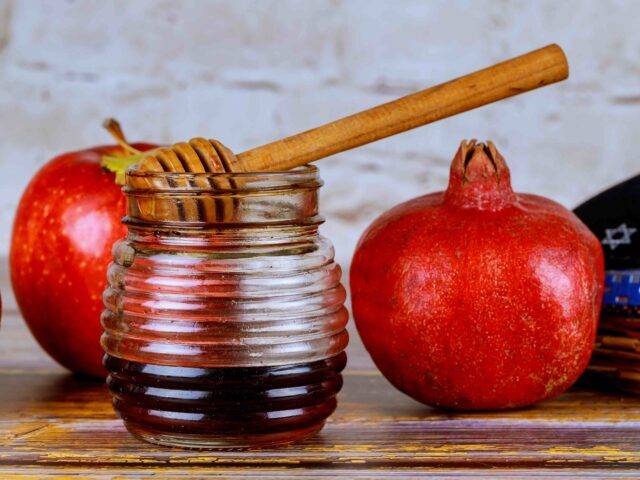Rosh Hashanah, the Jewish New Year, begins at sundown on Sunday and lasts through nightfall on Tuesday. The new year will be known as 5783 on the Hebrew calendar, which marks time since the Creation.
The holiday is a festive occasion, and also a solemn one. It is also known as the Day of Judgment, reflecting the belief that all of Creation is judged before God on the New Year, and that the fate of every living being is established for the coming year. (Another name for the holiday is the Day of Memory, since all of an individual’s deeds are remembered and recounted before a heavenly court.) When judged favorably, an individual is said to be inscribed in the Book of Life. Therefore Jews often wish each other a “Shanah Tovah” (“Happy New Year”) as well as a “G’mar Chatimah Tovah” (“Complete and Good Inscription”).
Rosh Hashanah lasts for two days because new months (and new years) were traditionally declared only after witnesses had traveled to the high court, the Sanhedrin, and testified credibly that the new moon had been sighted. To avoid the possibility of inadvertently ignoring the first day of the holiday, in case witnesses were late, the rabbinical authorities decreed that the New Year would be observed over two days.
The most important ceremony of the holiday is the sounding of the shofar, a special trumpet typically fashioned from the horn of a common ram (or, in more exotic style, the horn of an African kudu). The shofar — which shares a common Hebrew root with the word lehishtaper, or “to be improved,” is sounded 100 times on each day of Rosh Hashanah. Its call is meant as a reminder to repent for any sins of the past year and commit to a better, more charitable, and more fulfilling life in the new one.
Other traditions include the eating of apples dipped in honey — for a sweet new year; the baking of round loaves of traditional challah bread, to symbolize the cycle of life, with loaves often studded with raisins or other sweet fruit; the eating of special foods, such as a pomegranate — to symbolize a life full of countless good deeds; and a ceremony called Tashlich (“Cast Away”), in which penitents cast bread crumbs into a natural body of water, to express hope for the removal of one’s sins.
Joel B. Pollak is Senior Editor-at-Large at Breitbart News and the host of Breitbart News Sunday on Sirius XM Patriot on Sunday evenings from 7 p.m. to 10 p.m. ET (4 p.m. to 7 p.m. PT). He is the author of the recent e-book, Neither Free nor Fair: The 2020 U.S. Presidential Election. His recent book, RED NOVEMBER, tells the story of the 2020 Democratic presidential primary from a conservative perspective. He is a winner of the 2018 Robert Novak Journalism Alumni Fellowship. Follow him on Twitter at @joelpollak.


COMMENTS
Please let us know if you're having issues with commenting.